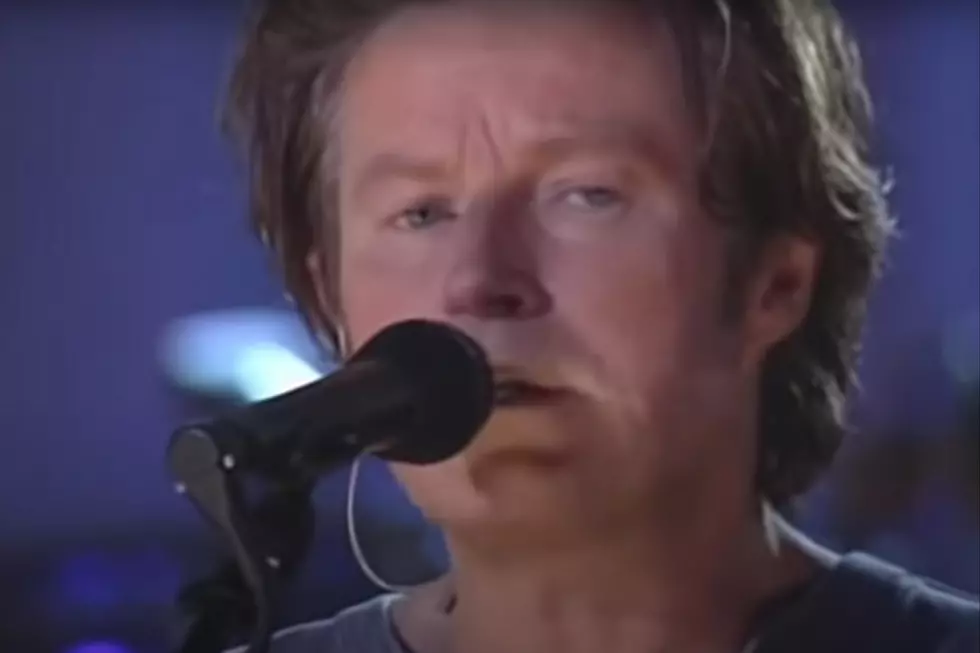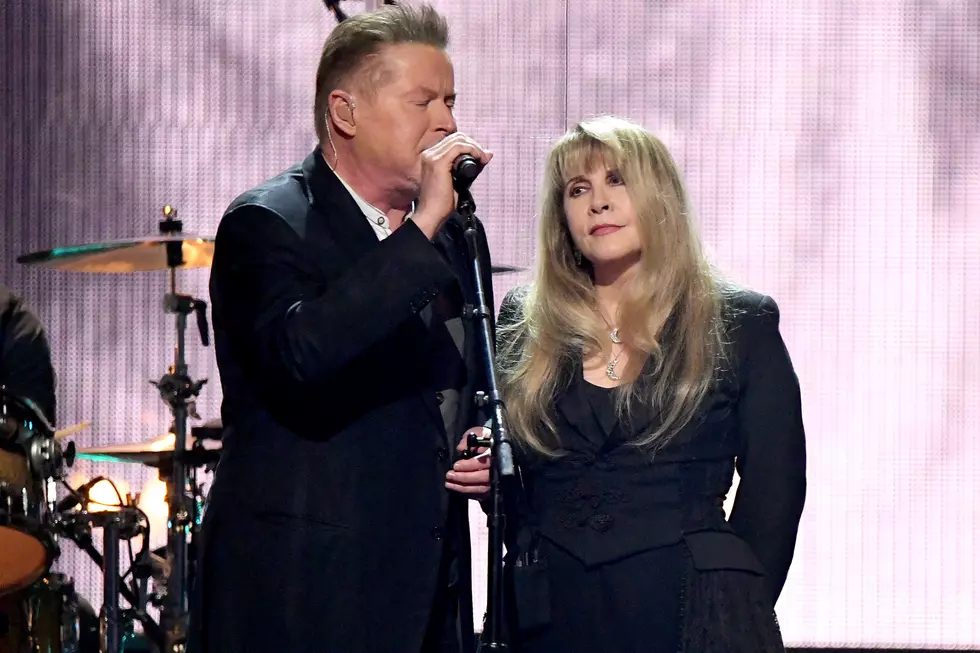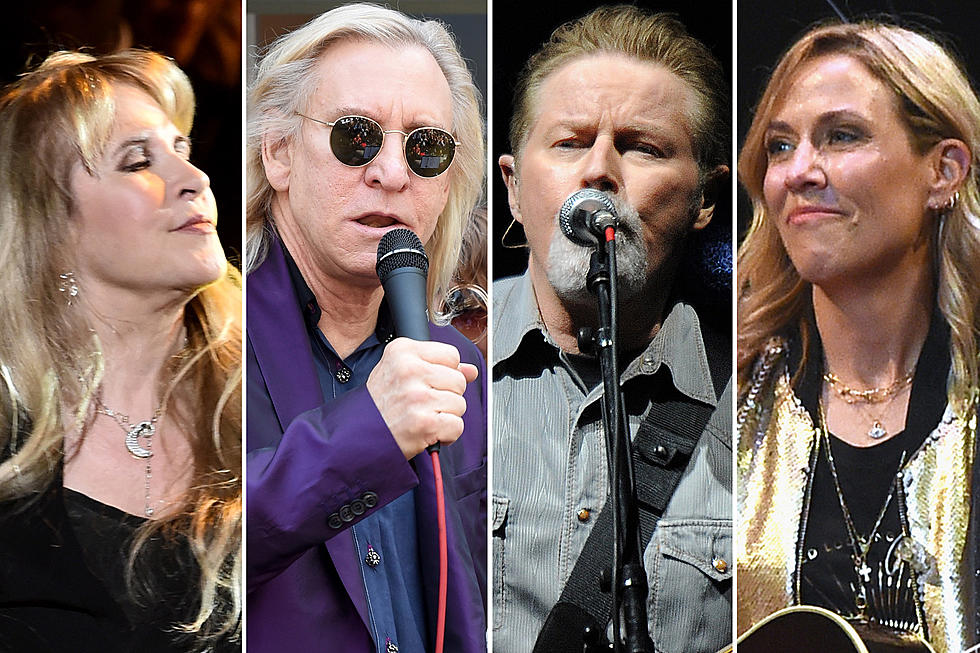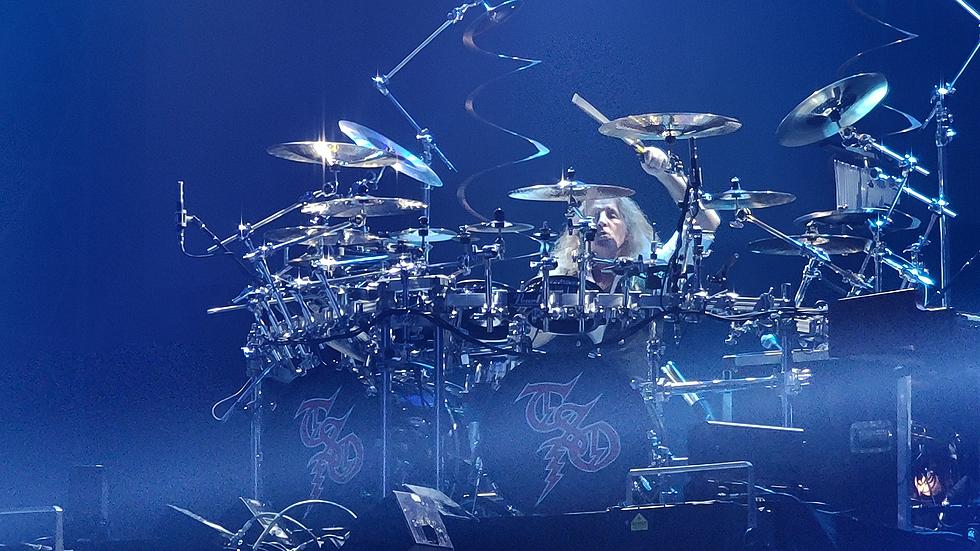
30 Years Ago: Don Henley’s ‘New York Minute’ Offers a Candid Look at Fate
Don Henley had seen The End of the Innocence rise and fall. Then a key Grammy win sparked newfound interest in the album, sending a previously forgotten song up the adult-contemporary chart.
"New York Minute" arrived on Nov. 6, 1990, almost 16 months after the first-single title track from its parent album went Top 10. In the meantime, two subsequent releases finished just outside the Billboard Top 20, while a pair of others – "I Will Not Go Quietly" and "If Dirt Were Dollars" – hadn't charted at all.
Then everything changed.
Henley's title song was recognized at the Grammys for Best Male Rock Performance in February 1990, giving The End of the Innocence new currency. "New York Minute" certainly fit the moment, with its tightly focused – and, as it turned out, quite prescient – message about our fickle fates.
"Painters and novelists are supposed to get better with age, and I think I'm still getting better," Henley told the Denver Post in 1990. "I'm getting more concise in what I want to say, making it clear so that others can understand."
For instance, Henley might have previously taken an opportunity to expand on this idea of transience by tying it to a favorite cause – say, the environment. He might have dressed it up with more complex imagery. But something was different now for the former Eagles star. "New York Minute" tells its story with straightforward intention: Lives are forever altered every day by choices we do and don't make.
"I'm still very angry about the world situation as I see it in government and as far as the way we are treating the planet, but I'm maybe mellowing a little more as far as love and romance are concerned – except that I don't particularly like the word 'mellowing,'" Henley told the Chicago Tribune in 1989. "I would rather think that I'm maturing. I'm still angry and I'm still dissatisfied, but I'm not an 'angry young man' anymore."
He began with a deeply resonant title that recalled a country idiom from Henley's east Texas youth, while giving his narrative a strong sense of place. The idea of Central Park in fall painted its own pictures.
"That's why those last verses he's singing, he's walking through the park and the leaves are rustling," key collaborator Danny Kortchmar told Songfacts in 2013. "He wanted to capture the essence of autumn or early winter in New York. We had the title, and we had kind of the idea."
Apparently inspired by the Wall Street crash of October 1987, "New York Minute" traces the aftermath of sudden, disconnecting ruin – with images that speak to loneliness, despair, even suicide.
"As I grow older, I see that people in general – not just racists – are becoming very wary of each other and separated," Henley told The New York Times in 1989. "We live in a time of great mistrust. The feeling that we are one as a nation is rapidly disappearing, and that carries over into people's private personal lives."
The music, which Kortchmar co-created with Jai Winding, perfectly captured that gathering darkness.
"I sat down at the piano and started playing the chord changes that you hear, and at home I fooled around with it for a while," Kortchmar told Songfacts. "Then I went to him and I said, 'I think I've got something for "New York Minute."' I played it for him and he went, 'Yeah, that's it; that's it. Let's record it.' And we did."
Henley tracked "New York Minute" with Toto pianist David Paich and drummer Jeff Porcaro. Pino Palladino added a distinctive bass line, while Take 6 filled out the background vocals. Then the song settled into an unjust fate as the tucked-away last song on Side One on The End of the Innocence, unnoticed by anyone apart from Henley's most loyal fan base.
The album began to lose steam. Renewed rumors of a possible Eagles reunion certainly didn't help. Time and again, interviewers ended up leaving The End of the Innocence by the wayside to discuss the possibility that Henley might return to his erstwhile band. "Everybody wants to know, 'Are you guys getting back together?,' Henley had grumbled to the Tribune. "The answer is, I seriously doubt it. And even if we did, it wouldn't be the same. You can't bring back a time that's gone."
Then Henley was recognized a few months later with four Grammy nominations, including Record, Album and Song of the Year. The End of the Innocence, which had fallen into the 40s on the Billboard album charts, quickly sold another half-million copies.
That rekindled interest opened the door for Geffen Records to showcase the project's best deep cut. In keeping with his most recent singles, "New York Minute" failed to crack the Billboard pop Top 20. It was a huge adult-contemporary hit, however, soaring all the way to No. 5.
Eventually, Eagles reformed, and "New York Minute" became one of the rare regularly featured solo tracks in their concert set lists. Later, its setting and sentiment girded a series of tributes in the aftermath of the 9/11 terrorist attacks on New York City.
But by then, The End of the Innocence had long since become Henley's first-ever solo Top 10 album – and his biggest-selling album to date, with 6 million copies sold in the U.S. alone. As with The End of the Innocence itself, Henley emerged with a belated feeling of purpose and renewal.
"I'm starting to look back and see that I have a nice legacy of tunes," he told the Post, "but I'm not done by a long shot."
Ranking Every Eagles Solo Album
The Complicated History of the Eagles’ ‘Victim of Love’
More From 96.1 The Eagle










